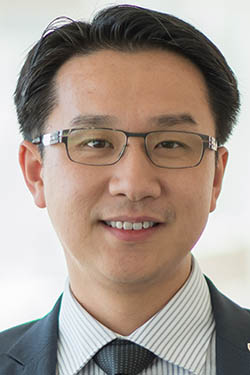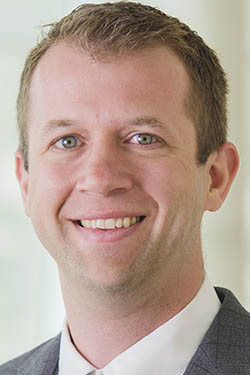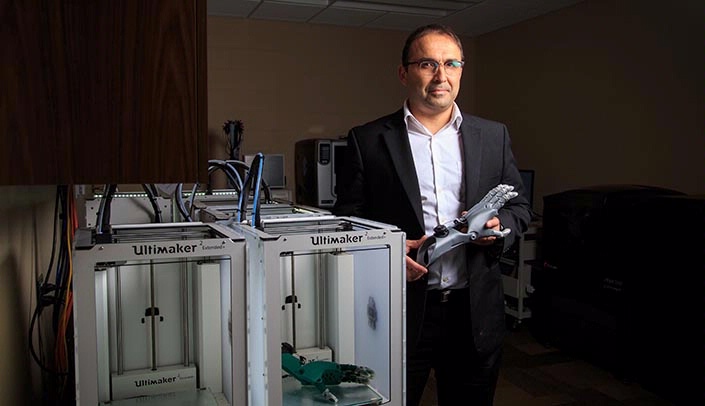A team of University of Nebraska researchers hopes a new two-year grant will help provide a solution for parents of children who need wearable prosthetics but cannot afford them.
Approximately 1,500 babies are born every year with upper-limb defects, but less than 1 in 9,400 children are fitted for prostheses due to cost and device maintenance. With the help of 3D printing technology, six professors from the University of Nebraska at Omaha (UNO), UNMC, University of Nebraska-Lincoln (UNL) and University of Nebraska at Kearney (UNK), hope to dramatically increase access for children in need.
 |  |
Ku-Chun “Joseph” Siu, Ph.D. | Justin Cramer, M.D. |
“A parent having to travel hundreds of miles and spend tens of thousands of dollars that they do not have all so their child can have some semblance of normalcy is heartbreaking to see,” said Jorge Zuniga, Ph.D., assistant professor of biomechanics at UNO and lead investigator on the grant.
Dr. Zuniga has spent years developing 3D-printed prostheses for children, including the revolutionary “Cyborg Beast” design, which can be freely downloaded online and constructed for just $50 worth of materials compared to current models that cost anywhere from $4,000 to $20,000 and require expertise to maintain.
“Current versions of these prostheses do not meet the needs of growing children,” Dr. Zuniga said. “As children grow they need replacement parts, which becomes cost prohibitive for parents. Meanwhile, the children themselves want designs that match their personality, which can mean everything from closely resembling human skin tone to replicating Iron Man’s arm.”
The $150,000 grant is provided by the University of Nebraska’s Collaboration Initiative, a university-wide effort launched by President Hank Bounds in 2015 to invest in cross-campus, cross-disciplinary research in areas where NU has global leadership potential. The initiative aims to build the university’s research expertise, capacity and competitiveness for external funding.
“This is exactly the kind of project the Collaboration Initiative is intended to support,” said NU Executive Vice President and Provost Susan Fritz. “It engages faculty with expertise in a diverse range of disciplines. It puts the University of Nebraska on the forefront of an emerging area of research. Most importantly, this partnership will result in real solutions that will impact real people in Nebraska and beyond.”
In the first year of the grant, the team will design and produce the devices. Participants will be recruited to test the new prostheses at the start of the second year.
